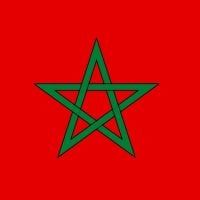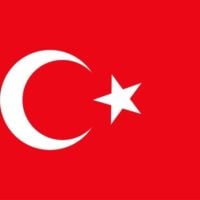Deadline: 31-Aug-23
The Degrees Initiative is holding a call for proposals for scientists in Central America and Mexico interested in undertaking climate modelling research to understand how solar radiation modification (SRM) could affect their local climate.
The fund provides grants to small research teams in the Global South, allowing them to analyse the impacts that SRM might have in their regions. To date, the DMF has supported over 150 scientists through 26 SRM research projects, including the first projects in South America, the Caribbean, Africa, the Middle East and Southeast Asia.
There are several objectives of the DMF grants:
- to support excellent science on the potential impacts of SRM;
- to build the capacity of developing country scientists to play a greater role in the evaluation and discussion of SRM;
- to expand the conversation around SRM with local stakeholders; and,
- to build South–South and South–North links over SRM research and discussion.
Focus Areas
- The Degrees Initiative is not prescriptive about the focus of DMF research projects or the methods used to undertake the research. The research can address any aspect of physical climate change, or any climate impact, such as extreme temperature or rainfall, agriculture, ecosystems, or water resources. The first round of DMF studies explored how SRM could affect, amongst other things:
- Rainfall in West Africa
- Extreme droughts in Cape Town
- Dust storms in the Middle East
- Extremes of temperature and precipitation in Indonesia.
Funding Information
- Grants of up to USD 75,000 are available to support successful teams over 26 months as they carry out their research projects. Funding is only available for modelling studies that research any aspect of physical climate change or any climate impact. The Degrees Initiative is not prescriptive about the specific focus, methods, or outcomes of research projects.
- Standard contribution
- Each DMF research team will also be allocated a standard contribution of USD 15,000 to support additional activities and equipment related to the grant, including:
- Purchase of computer equipment and software where necessary to complete the DMF research activities (up to USD 2,000 per grant);
- Payment of open-access journal publication fees (up to USD 5,000 per grant);
- Participation in relevant international conferences during the grant’s lifetime, as well as the participation of up to two scientists in a potential research-planning workshop (up to USD 8,000 per grant overall).
- Teams that do not need salary support may also apply for DMF grants of USD 15,000 (plus overheads) to support all these sundry expenses. They would also enjoy all the other benefits of being in the DMF research community, including support from world-leading experts as they do their analysis.
- Each DMF research team will also be allocated a standard contribution of USD 15,000 to support additional activities and equipment related to the grant, including:
Why apply for a DMF grant?
- The Degrees Modelling Fund (DMF) is the first international SRM modelling fund and the first aimed exclusively at scientists in developing countries and emerging economies. It provides funding to support research project staffing costs as well as sundry costs such as open-access publishing fees, computer equipment, and participation in international conferences. Most importantly, successful applicants will join a diverse global research community which includes some of the world’s top SRM modelling experts. Teams get the opportunity to work closely with these experts and colleagues worldwide throughout the duration of their projects, benefiting from South–South and South–North collaboration and networking opportunities.
Eligibility Criteria
- To be eligible for funding under the 2023 Central America and Mexico call for proposals:
- Principal investigators should have a PhD and appropriate research experience. They must be citizens of, AND should work at a university or research institution in one of the following eligible countries:
- Belize, Costa Rica, El Salvador, Guatemala, Honduras, Mexico, Nicaragua, Panama.
- Principal investigators should have a PhD and appropriate research experience. They must be citizens of, AND should work at a university or research institution in one of the following eligible countries:
- Please note:
- The Principal Investigator must be employed by the Host Institution where the project will take place. However, other team members can be based at other institutions as long as they fall within the aforementioned eligibility criteria.
- The Degrees Initiative will only consider proposals that can be supported within the limits of applicable sanctions from the United Nations, the United Kingdom, and the United States of America.
- To create a level playing field for applications and to encourage capacity-building in the Global South, Degrees will not consider applications that have established SRM experts from the Global North as team members. Teams will be connected with their research collaborators after DMF grants have been awarded.
- Funding is only available for modelling or analysing physical climate change or any climate impact, such as agriculture, ecosystems or water resources. There will be a separate call for proposals in the future for research in the social sciences.
For more information, visit DMF Grants.









































